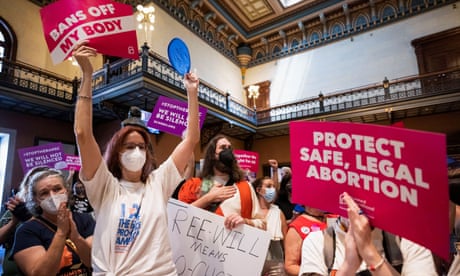Here's a discussion, in an Asian context, of providing incentives to families to consent to deceased donation.
Introducing Incentives and Reducing Disincentives in Enhancing Deceased Organ Donation and Transplantation by Kai Ming ChowMBChB⁎ Curie AhnMD† Ian DittmerMBChB‡ Derrick Kit-SingAuLMCHK§ IanCheungMBBS║ Yuk LunChengMBChB¶ Chak SingLau MBChB Deacons Tai-KongYeungMBBS║ Philip Kam-TaoLi MD Seminars in Nephrology, Available online 27 December 2022
*Department of Medicine and Therapeutics, Carol and Richard Yu PD Research Centre, Prince of Wales Hospital, The Chinese University of Hong Kong, Shatin, Hong Kong
† Department of Internal Medicine, Seoul National University Hospital, Seoul National University College of Medicine, Seoul, South Korea
‡Department of Renal Medicine, Auckland City Hospital, Faculty of Medical and Health Sciences, University of Auckland, Auckland, New Zealand
§Centre for Bioethics, Faculty of Medicine, The Chinese University of Hong Kong, Shatin, Hong Kong
║Cluster Services Division, Hospital Authority, Kowloon, Hong Kong
¶Department of Medicine, Alice Ho Miu Ling Nethersole Hospital, Tai Po, Hong Kong
#Department of Medicine, Queen Mary Hospital, University of Hong Kong, Pok Fu Lam, Hong Kong, China
Summary: Despite the effectiveness of solid organ transplantation, progress to close the gap between donor organs and demand remains slow. An organ shortage increases the waiting time for transplant and involves significant costs including patient morbidity and mortality. Against the background of a low deceased organ donation rate, this article discusses the option of introducing incentives and removing disincentives to deceased organ donation. Perspectives from ethics, general public opinion, and the health care profession are examined to ensure a comprehensive appraisal and illustrate different facets of opinion on this complex area. Special cultural and psychosocial considerations in Asia, including the family based consent model, are discussed.
This sentence caught my eye:
"After suggestion by Economics Nobel Laureate Alvin Roth for the community to unite to remove disincentives to kidney donation, the transplant community and academia have been having more discussion and analysis. That, in part, hinges on the estimates of the economic welfare gain for the society as a whole."
...
"PERSPECTIVES OF ASIAN SOCIETY
"It is widely recognized that deceased organ donation rates in Asian countries have been significantly lower than that in Western countries.
...
"No one disputes the social and cultural beliefs in the decision to donate organs.
...
"An example of honoring the principles of reciprocity in incentivizing organ donor registrations is the organ allocation priority policy. Israel became the first country in 2008 to enact legislation incorporating such incentives based on individuals’ willingness to donate into their organ procurement system.26,42,43 The policy provides an incentive or motivation by the reciprocal altruistic dictum that “each partner helping the other while he helps himself,”42 granting priority on organ donor waiting lists to those individuals who registered as organ donors by signing a donor card for at least 3 years. Subsequent observations in Israel, as analyzed 5 years after introduction of the new policy, included an increase in the authorization rate of next of kin of unregistered donors, as well as a two-fold higher likelihood of next-of-kin authorization for donation when the deceased relative was a registered donor.44
"How does the concept of reciprocity apply for Asian societies? Will the results from Israel be replicated in Asia? Although social exchange theory should be a universal normal applicable to all human relationships, cultural influence or patterns might differ. Previous research on reciprocity across different cultural contexts, indeed, has shown that East Asians tend to reciprocate in kind and emphasize more on equity-based theory than Americans.45 Viewed through such a lens of “to give is to take,” it is relevant to quote another similar example in Taiwan, where incentives were provided to deceased organ donors’ families. In brief, after a person has become a deceased organ donor in Taiwan, up to three of his or her blood relatives will be granted priority to receive a deceased donor organ should they be on the waiting list for transplantation.46
"At the heart of the issue is the family based consent that is unique and vital, albeit not exclusive, in Confucian tradition within Chinese societies. It is important to note that organ donation is more often a family based consent process in Chinese culture than those “from a Western cultures”. As such, family priority right provided in the Israel or Chinese model would be more likely to motivate organ donation within a family based ethical culture.47 As in any discussion of culture's influence on organ donation decision, we must be mindful that East Asians tend to favor family centered decision making.
...
"If the concept of reimbursing funeral expenses for deceased organ donors is explored further then these four tenets are suggested as a guide: Tenet 1: the overarching principle is to appreciate and recognize the altruistic behavior of organ donors, and not the next of kin. Tenet 2: the second priority of reimbursing funeral expenses is to motivate the passive-positive public to sign up for organ donation. Tenet 3: the ultimate beneficiary from an incentive system is society, with an improved deceased organ donation rate. Government and charitable organizations, but not organ recipients, should be the source of payment. Tenet 4: as a token of expressing gratitude to the deceased organ donors, funeral expenses reimbursement preferably should be offered to those who have expressed the wish to donate (donor registration); they should have been provided the option to decline the offer."






